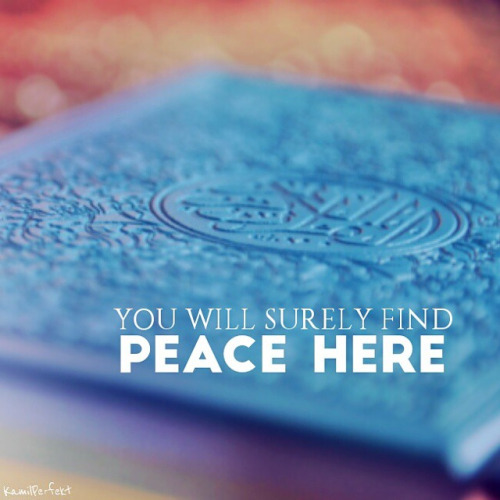We know that Ramadan is a month full with barakah or blessings. For every obligatory act of worship, we are being rewarded seventy times more than in any other time of the year.
Every sunnah or nafl worship is given the same weight as an obligatory act of worship outside of Ramadan.
This is one of the blessings Allah bestows on us in the month of Ramadan.
What is Barakah?
Barakah is often translated and described as divine blessing or as blessing power. It is a spiritual concept inherent in Islam. Barakah is part of a Muslim’s spiritual reality and something to look and strive for.
Helping one’s religious teacher, for example, will bring barakah to the student who undertakes these activities.
Cooking food for a religious gathering will bring barakah both to the cook and to those who eat the food.
Barakah can be sought everywhere depending on the circumstances, the people involved and the place in which certain activities take place.
It can be obtained through activities, through people, through places, or through a mixture of all of these.
All barakah ultimately flows from Allah and the activities, things or food are only intermediaries in this process. They are not the purpose but the purpose is to seek Allah’s pleasure and to become closer to Him.
It is important to remember that although barakah is transferred through a certain medium, it comes solely from Allah; otherwise it is seen as an unacceptable practice of shirk (associating partners with Allah).
How to Get it?
Barakah can especially be obtained through pious acts. For example, the time before the morning prayer is a very special and blessed time.
That is why we should try and make an effort to get up to be able to obtain some of the barakah of the time of Tahajjud. Because it is during Tahajjud time that Allah makes it easier to draw closer to Him and to feel His closeness. He accepts duas during this time and sends His special mercy on those who are awake to worship Him.
We can start with this extremely beneficial practice now in Ramadan. We are up and awake to have our sahur meal. So, we should try and pray two extra prayer cycles and make dua to Allah and we will see that this will have an effect on our relationship to Allah.
The Prophet was ordered to arise at night to spend some of the night in prayer. Since he is our primary example to follow and following him will also invite barakah in our lives, we should try to wake up for night prayer, even if it is only for five minutes.
And for those of us who have extreme difficulties getting up, we should set the alarm, and make dua to Allah. Insha’Allah, with this effort, Allah will make us among those who stand in prayer to Him during that blessed time in the third quarter of the night.
Be Consistent
Ramadan is a month that is full of barakah. If we want to start or add anything in our spiritual schedule, we should do it now. Because, insha’Allah, with the special blessings of Ramadan we will have it easier to continue and have istiqamah on what we have started after Ramadan ends.
For example, we always wanted to read Surah Al-Kahf (Chapter 18) on Fridays but always made excuses that we are too busy and don’t have enough time to read this rather long Surah.
Start now in Ramadan! And make dua to Allah to grant you istiqamah in reading Surah Al-Kahf every Friday from now.
Reading Surah Al-Kahf will insha’Allah protect us from the fitnah of Dajjal. And another Hadith explains to us that whoever recites Surah Al-Kahf will have a light shine from him from this Friday to the next.
We should also try to memorize some parts of the Quran in this blessed month of Ramadan. Insha’Allah with the barakah of Ramadan, we will be able to store some of Allah’s book to our memory.
While all of Quran is equally important, there are some chapters that were mentioned by the Prophet Muhammad to have special merit like Surah Yasin or Surah Al-Mulk.
The Prophet said that he wishes that these chapters are stored in the heart of every believer. Let’s try to make an effort to learn at least some verses of these chapters in this special month of Ramadan.
Among traditional Islamic scholars, adherence to the outward Sunnah of the Prophet Muhammad is also seen as a means of obtaining barakah.
The more one conforms to the Prophet Muhammad’s outward form of dressing, walking, speaking, eating, etc., the more barakah a person gains and the closer one draws to Allah.
However, this is, of course, also true for the inward Sunnah, which includes reading duas of the Prophet, and following the lifestyle, feelings and inner state of mind described in many different Hadiths.
Conclusion
The month of Ramadan shows to us that a certain period or time contains barakah for a Muslim who makes use of this time in a certain and prescribed way.
Making use of this special month in order to receive barakah means to do the obligatory fasting and extra (sunnah and nafl) worship, giving charity, helping others, be kind to others and abstaining from unlawful and disliked acts as much as possible.
Let’s strive to obtain the most barakah, the most blessings from this beautiful month of Ramadan. Insha’Allah.
If you can take some useful information from this article, this comes from Allah SWT. Alhamdulillah. And if there is anything unclear, wrong or expressed in an impolite way, I ask Allah SWT for His forgiveness.
